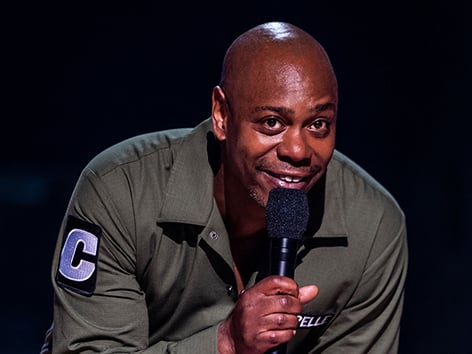Comedy has long been under the left’s control, as just one province of the U.S. entertainment empire centered in Hollywood—which is itself a bastion of leftist control over mainstream culture. But comedy is a rebellious province by its nature, as what comics and their audiences find funny is often the opposite of what the left decrees politically correct.
Rebellions have been put down swiftly. In 2016, the cable network Adult Swim cancelled a comedy sketch show that had been a breakout hit, Million Dollar Extreme, after activist comedians and journalists complained to the network’s executives that the show was too Alt-Right. Whether it was or not, its brand of comedy was deemed too insensitive and its popularity of the same kind that drove Trump into office; so, it was cancelled. In 2017, Netflix audiences rebelled against the empire-approved comedienne Amy Schumer’s The Leather Special, which featured tiresome jokes about her own sexual promiscuity and anatomy, tame in their raunchiness and as graceless as Schumer herself. The Leather Special was bombarded with bad ratings, which Schumer blamed on that convenient boogie man, the Alt-Right. Days after her special’s disastrous release, Netflix ran to Schumer’s rescue and disabled its audience rating feature.
Most recently the comedian Shane Gillis was forced to resign from Saturday Night Live after an activist journalist dug up a clip of him riffing on the Chinese, in which he used a racial epithet and mimicked an accent. Gillis’s routine would be seen as only mildly provocative even by the standards of just 10 years ago, to say nothing of the Asian samurai character John Belushi played on SNL in 1975. Today, it’s just a white male “punching down” on people of color—that phrase being today’s preferred nomenclature to criminalize comedy.
I’m not citing a shift from 10 years ago arbitrarily. Since 2010, the number of news articles mentioning the phrases “Diversity and Inclusion,” “Whiteness,” “Critical Race Theory,” “Unconscious Bias,” “White Privilege,” “Systemic Racism,” and “Intersectionality,” have skyrocketed, increasing roughly tenfold in some cases, according to research using the LexisNexis database posted online by Zach Goldberg. Veteran comedians including Jerry Seinfeld and Chris Rock started sounding the alarm on this rising trend of humorlessness in 2015, saying they had stopped playing college campuses because, in Seinfeld’s words, they had become “too PC.”
But some rebellions are too strong to be suppressed. In August, the comedian Dave Chappelle released a new special entitled Sticks & Stones, and it came as a stark slap in the face not only to political correctness, but other sacred cows such as gun control, abortion, and LGBTQ activism. The thought controllers were appalled. After all, Chappelle’s Show on Comedy Central in the mid-2000s throve on racial disparities—one notable sketch, “The Niggar Family,” parodied the white culture of 1950s sitcoms, with Chappelle directly addressing the viewer to exclaim, “This racism is killing me inside!”
The thought controllers leapt to suppress Chappelle’s apparent rightward turn. “You Can Definitely Skip Dave Chappelle’s New Netflix Special ‘Sticks & Stones,’” read a VICE News headline. The reviews of professional critics on the Rotten Tomatoes site were abysmal, with just 31 percent approving of Chappelle’s latest. Then, the audience reviews came flooding in, giving Sticks & Stones a 99 percent approval rating. Meanwhile, reviews for the comedy special of a left-approved autistic lesbian, Hannah Gadsby, were the reverse, garnering an unprecedented 100 percent approval rate from professional critics, but just 25 percent from audiences.
Sticks & Stones opens with Chappelle trying out an impression and asking the audience to guess who it is. “If you do anything wrong in your life, duh, and I find out about it, I’m going to try to take everything away from you,” he said. Someone in the audience incorrectly guessed Trump. Chappelle provided the answer by pointing at the audience. “That’s YOU! That’s what the audience sounds like to me. That’s why I don’t be coming out doing comedy all the time…[sic].”
Chappelle’s new special is profanity-laced and irreverent, but also hilarious and refreshing. It would be going too far to call him a new ally of conservatives as such, as true comedians are unsteady allies of any political persuasion. But his latest special is a severe blow to the Cultural Marxists—and the enemy of our enemy is our friend.



Leave a Reply